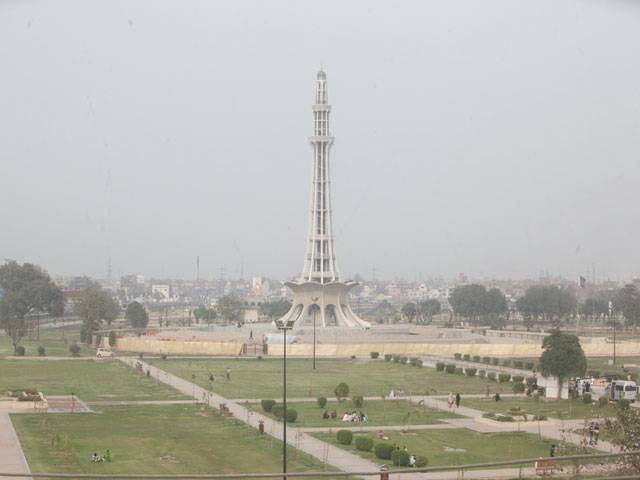History is a testament to the fact that dedication and endurance determine the life and downfall of nations. Some nations struggle to survive while others thrive on ambition and advancement. The celebration of 23rd March marks one such memory for all Pakistanis. In the year 1940, Lahore Minto Park, this nation decided to advance and to survive as a separate entity on the map of the world. The elders of the Muslims of the sub-continent were able to visualize and articulate the true picture of freedom and liberty and then there was the day, when they wrote it down. That day was 23rd March, 1940. It would not be out of place, to call it, the inception of a country and a nation that was to be. Before this day, the Muslims of the sub-continent were open to the idea of a combined constitution with the Hindus and the British Raj, one which would safeguard religio-political rights. This could not be achieved and the struggle for Pakistan was formal after the auspicious day of 23rd March. Ironically, 23rd March is also the day when Bhagat Singh was hanged in Lahore at aged 23 in 1931, another historical mark on its own. Perhaps, destiny has its own language.
Another intriguing factor about the Pakistan resolution of 1940 was its apt timing. Under the leadership of Quaid-e-Azam Muhammad Ali Jinnah, the Muslims of the sub-continent identified their objectives. The Quaid made it clear to the masses that through determination and perseverance, tyranny could be over-ruled. In Minto Park, the Quaid made a historical speech which included criticism of the British rulers against involvement of Indian forces in the Second World War without the consent of respective Indian leaders. Quaid also pointed out the reasons for the failure of the Muslim League in the elections of 1937. The leadership and the followers were united in their ambitions and aspirations whereby it was agreed that mistakes of the past would not be repeated. Following the Pakistan resolution, fierce struggles and endeavors lead to the creation of Pakistan in 1947 against heavy odds.
With millions of immigrants, the massacre in Punjab, war with India over Kashmir and absolute dearth of resources, the new born state of Pakistan seemed to be failing right from the start. Many predicted that the fragile state would not last longer than a decade. Muhammad Ali Jinnah died in 1948 while Liaquat Ali Khan was assassinated in 1951. Through sheer conviction and valor, the nation continued to progress. Again, another milestone was achieved on yet another 23rd March of 1956 when Pakistan was declared as the Islamic Republic of Pakistan. Muslim League was born in 1906 but the first Islamic Constitution came into being in the days of Iskander Mirza. Pakistan was on its way to becoming a prosperous nation with a magnificent blend of modern democracy combined with Islamic ideals but this never was an easy task as Hegel once said, “I have yet to discover a strong nation with a painless past”.
World War II resulted in a polarized world. The division of Berlin also signified the division of the globe, East versus West, Liberalism versus Socialism, and Capitalism versus Communism. It was not long before the flames fell upon Pakistan. Even though there were substantial political movements towards socialism in Pakistan, the heads of state preferred the liberalism of the West. The Government of Pakistan drafted a foreign policy with Pro-Western/American sentiments. From an analytical perspective, Pakistani leaders fell under the influence of American aid during another martial law, this time against the soviet invasion of Afghanistan in1979. It did nothing but brought the fire of war and terrorism to the cities of Pakistan. China has been progressing and devising its own strategy to counter the influence of western powers in the region. The time has come that Pakistan’s true potential is to come of age through regional cooperation with China.
23rd March 2017 is the dawn of a new horizon for Pakistan and China. The modern world gauges success or failure of a nation in broad macro and micro economic expansion. True independence and defense against foreign intervention can only be ensured through superiority in productivity and commercial competition. China-Pakistan economic corridor is a unique project. It not only incorporates industrial, infrastructural and trade ventures but those of socio-cultural exchanges between people of Pakistan and China. For the first time in history, Pakistan is on its path to progress and development based on mutual cooperation instead of aid or interference in foreign policy. CPEC will be a game changer for Pakistan and the region, the revival of the silk route and huge gains coming from exponential grown in trade will surely contribute towards achieving the Quaid’s dream that was Pakistan. Our country is passing through a agonizing times but there is still hope, for the night is darkest just before dawn. (The Writer is Chairman, Jinnah Rafi Foundation)






